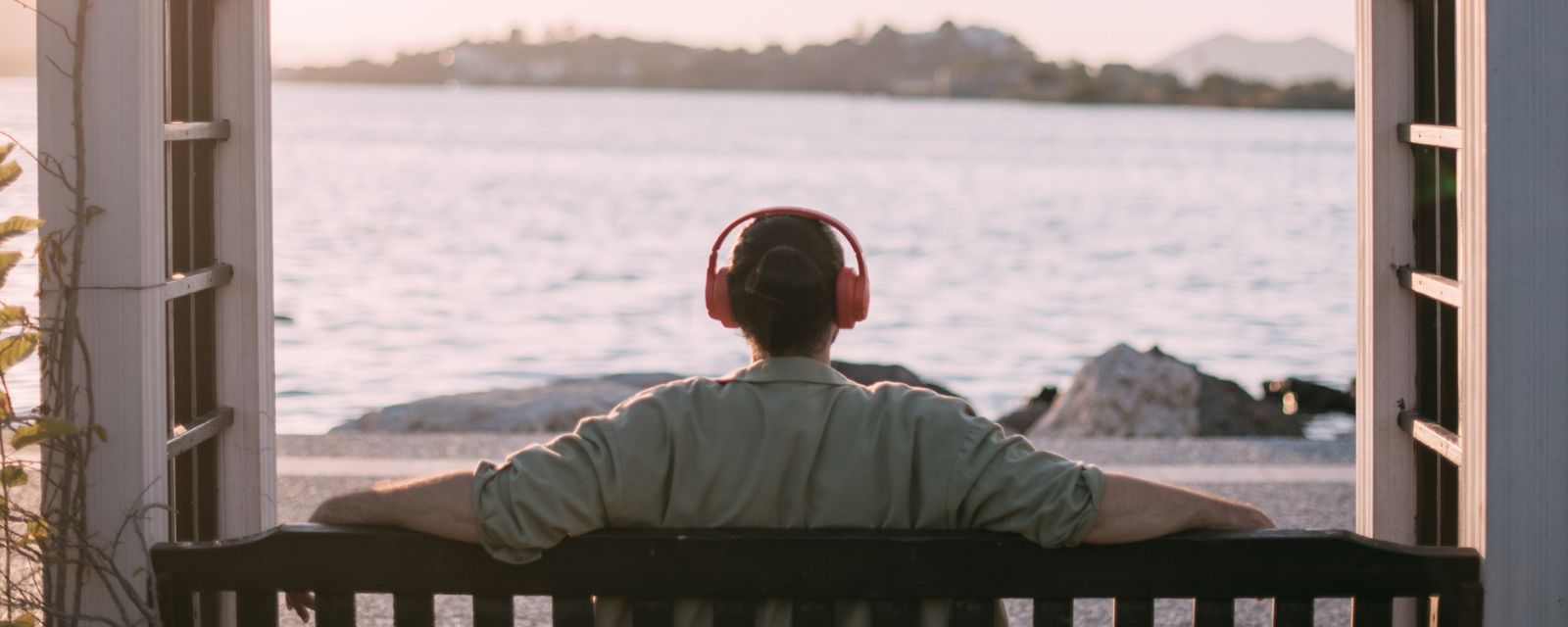Struggling Teenagers, Netflix’s Wayward, and the Truth About the Troubled Teen Industry
As a parent, how do you support your teen when they seem completely defiant and out of control? It’s clear that being a teenager in the U.S. today is hard. The impact of social media and COVID-19 lockdown for young people during their formative years is well documented, and families and caregivers are struggling to help young people make their way through this difficult time. The World Health Organization estimates that nearly 15% of teenagers worldwide suffer from some form of mental illness, and the already heady cocktail of hormones typical of adolescence can exacerbate symptoms and make treatment even more challenging.
Some teenage issues are very new to families and therapists alike: teens can purchase drugs online, bully one another via TikTok, and discover highly dangerous trends like subway surfing through their devices. Other behaviors are familiar to all of us: refusing to participate in family activities, experimenting with weed and alcohol, dressing in ways that confuse or offend adults, etc. It can be hard to tell what teenage behavior constitutes typical growing pains and what represents a real cause for concern. Teenagers are driven by a desire for independence as well as belonging, and their emotions are stronger than the parts of their developing brain that help them make logical decisions, so trying to counsel them can seem difficult or nearly impossible.
While things may seem bad now, difficulty with teenage behavior is nothing new, and Netflix’s Wayward explores some of the ways that desperate parents have tried to “fix” or “save” their teens by handing them over to the care of professionals when they feel inadequate.
Is Netflix’s Wayward Based on a True Story?
Netflix’s Wayward explores the history of the so-called “Troubled Teen Industry” through the fictional town of Tall Pines, a community filled with graduates of a reform school of the same name. Its leader Evelyn, played by Toni Colette, maintains a cult-like influence over the school and town, promising personal transformation and belonging to all in her orbit, and punishing anyone who dares to question her. Students often become staff members at the school, perpetuating the abusive practices enacted against them in the name of removing the “darkness” inside their patients.
The show’s creator Mae Martin was inspired by the experiences of their friend Nicole, who served as an advisor on the show. Both Mae and Nicole were considered “troubled” by their families and schools, but only Nicole went to an institution that purported to “fix” children who were giving their parents a hard time. There were a range of facilities that fall into this category: residential drug treatment centers like Phoenix House, “wilderness” or “bootcamp” programs like The Challenger Foundation, and “therapeutic” boarding schools like Élan School (all of these examples have been shut down due to reports of abuse and neglect).
While controversy and advancements in typical mental and behavioral health techniques have reduced the prominence of these organizations as a go-to for difficult cases, they still exist under various names and claim to treat a wide range of issues, from drug abuse to misbehavior and defiance. Paris Hilton is one of many famous alumni of such institutions. According to Hilton, her therapist told her parents that the infamous Provo Canyon School in Utah would provide a “tough love” approach that would curb her rebellious behavior like sneaking out and performing poorly in school. The severity of treatments and punishments Hilton experienced there were not equal to the relatively mild issues she was experiencing, and she has since become an advocate for greater regulation of these institutions.
The lack of laws in the United States regulating these kinds of organizations has added to the controversy that follows them, and while bills to regulate them were proposed every year between 2007 and 2018, it wasn’t until 2024 that then President Biden signed one into law. Alumni and staff of the schools reported widespread physical, psychological, and sexual abuse, and there was little evidence that their methods were effective in curbing unwanted behavior in children and teens. In fact, mental health professionals found that the organizations not only used unproved methods; they also avoided methods that were proven effective like cognitive behavioral therapy. The lucrative and predatory nature of the industry - desperate parents were willing to pay almost anything to help (or get rid of) their children - added to public furor over the adverse effects of the treatments administered for patients and families alike.
What similarities are there between Tall Pines and other Troubled Teen Industry schools?
Wayward details a number of practices that were in use at the height of the Troubled Teen Industry:
1. Origins:
Wayward traces the origins of its setting to a cult-like group that promised belonging and personal liberation in exchange for total obedience to its founder, and similarly, the Troubled Teen Industry traces its origins to a group called Synanon which is now recognized as a cult. Synanon was founded in the 50’s as a drug rehabilitation program, and enjoyed popular success until its closure in the 1990s due to IRS violations, terrorism, and attempted murder(!), among other controversies. The most direct parallel between the cult and Wayward’s reform school is the Synanon Game, which is recreated in Wayward as “Hot Seat.” Similar to the show’s portrayal, the Synanon Game invited players to tell one another what they really thought of each other, frequently escalating into verbal abuse. Each session ended by requiring members to reconnect as a community, forbidden from engaging in conflict with one another outside of sessions in the same way that Hot Seat closes with a creepily ecstatic group hug.
Also known as “attack therapy,” the Synanon Game survived to become a primary treatment tool for later institutions in the Troubled Teen Industry. The philosophy behind attack therapy is that the individual’s free will is compromised as evidenced by their drug use or other antisocial behaviors. To remedy this, their psychological defenses and sense of self must be “torn down” in order to be “built back up,” words Evelyn uses almost verbatim. In other words, attack therapy seeks to remove individuality and indoctrinate members with the beliefs of the therapeutic leader or group.
2. Kidnapping:
In Wayward, mischievous pot-smoking teen Abbie is taken to Tall Pines from her bed in the middle of the night due to her parents’ disapproval of her lifestyle and desire to have her conform to their standards. Also known as “gooning” by survivors, this practice led to its own industry within the Troubled Teen Industry - Teen Escort Companies. If you’ve seen Scared Straight or a few episodes of Jerry Springer, you know what this is. Parents sign over temporary custody of their children to these organizations which then forcibly take them from their homes, sometimes from their beds in the middle of the night, and transport them to a facility where they are trapped against their will for rehabilitation. In one case, an emancipated minor in New York was kidnapped by a Teen Escort Company on the orders of her parents and transported to a facility in Utah where the majority of these organizations are located. She was later able to sue her parents and the company for violating her rights. Used as a scare tactic to bring patients to a state of submission, gooning is proven to cause trauma in survivors who suffer from sleep disruption and trust issues throughout their lives.
3. Chemical Restraints:
Daniel, one of Tall Pines’ more rebellious residents, is at one point wrestled to the ground and injected with Thorazine, an early antipsychotic that was developed as an alternative treatment to lobotomy. Similar to a lobotomy, Thorazine did not treat mental illness; it merely controlled symptoms enough to make patients more easily manageable for practitioners. Troubled Teen schools were known to use physical and chemical restraints as part of their treatment, or as a punishment for disobedient clients. Thorazine was marketed to mental health institutions as a way to reduce cost of care, another indication that it lacked therapeutic value and was instead a method of control over patients. In addition to Thorazine, Evelyn uses other drugs to literally brainwash her clients, and while psychedelics are not known to have been used in these facilities, her methods mirror the philosophy of many of these programs.
4. Punishments and Privileges:
An important aspect of Troubled Teen Schools (at least from the perspective of the people who ran them) was punishing students for transgressions, then giving them basic rights and calling them “privileges.” Rules could be as straightforward as restricting students from harming one another, or as bizarre as forbidding certain language or policing personal hygiene. Punishments ranged from forced labor to solitary confinement, which are already controversial when used on adults in prison. In some situations, fellow students who were considered more advanced were given the power to punish those with infractions, similar to the way Stacey is given the power to punish Abbie by forcing her to sleep on the ground.
Deputizing peers to carry out punishments is an effective method of control; after suffering these punishments themselves, students are desperate to avoid future trouble, and see punishing others as a way to both distance themselves from the pain and ingratiate themselves with those in power. Some of these students ultimately became employees of the institutions that broke them down, perpetuating the abuse they themselves suffered. After punishments are over, those in charge may allow the students some of their rights back - the right to sleep, eat, shower, etc. - and frame these as privileges they have to earn. Reorganizing their lives around avoiding punishment and trying to earn basic rights creates a kind of psychological dependence in some clients leading them to idolize their captors in an effort to justify the abuse they suffered, much like Rabbit, who went from a troubled teen herself to a lead counselor at Tall Pines.
.jpg)
5. Student Deaths:
One of the first major events in Wayward is the escape and ultimate death of a student. During its twenty years in operation, Tall Pines loses eighteen students who are never found, and authorities chalk it up to an inevitable consequence of working with troubled children. This is sadly part of the story of the Troubled Teen Industry in general. In 1990, Challenger Foundation owner Steve Cartisano was charged with child abuse and negligent homicide after client Kristen Chase died of heatstroke while enrolled in the “wilderness therapy” program. The jury did not convict him. Later cases against similar organizations had more favorable outcomes for plaintiffs, but the deaths continued. Some reports estimate that over 300 children and teens have died as a result of their time in a Troubled Teen school since 1976. Causes of death range from dehydration, starvation, and infections to suicide.
Are there still schools like Tall Pines operating today?
A number of Troubled Teen organizations were shut down after controversy and lawsuits in the early millennium. However, an article in the Baltimore University Law Review estimates that at least 150,000 American teens are enrolled in some kind of “wilderness program” today. According to a USA Today article, COVID-19 created a boom in business for the Troubled Teen Industry. Isolated at home with their teens who were acting out under the unusual pressure of a global pandemic, parents felt that they had exhausted all other options and needed to commit their kids to the care of professionals. Glossy brochures promising personal transformation through exposure to nature were certainly appealing at a time when everyone was trapped in their apartments, but persistent reports of abuse and unsanitary conditions have marred the reputation of places like Trails Carolina, which was closed by the North Carolina Department of Health and Human Services after a boy died in 2024.
There are, of course, accredited residential programs that really can help teenagers who are struggling to grow up or assimilate into adult life, and parents can be ill equipped to deal with some serious issues their teenagers might face. Overseen by governing bodies and utilizing evidence-based treatments, these facilities are well-regulated, and staff are highly trained. If you are considering sending your child to a facility for treatment away from home, it’s critical that you vet the organization and see which state and federal governing bodies are responsible for their oversight, and find out what kinds of treatment methods are used on clients. Look for a focus on mental health - treating the underlying issues causing the behavior like anxiety and depression - rather than “tough love,” which typically involves non-evidence-based treatments like physical deprivation.
If you feel overwhelmed by your responsibilities as a parent to a troubled teen who is acting out, a therapist may be able to help both of you deal with the difficulties of family life at this unusual time for both children and families. Sage Therapy offers individual therapy for adults and teens alike, as well as family sessions to work through your challenges together. Before you take the big step of releasing your child into the custody of one of these organizations, it’s worthwhile to address your problems directly with a trained therapist who will help you find common ground, clear up any misunderstandings between you and your child, and find a path forward.
Further Reading and Resources:
All material provided on this website is for informational purposes only. Direct consultation of a qualified provider should be sought for any specific questions or problems. Use of this website in no way constitutes professional service or advice.

.jpg)


